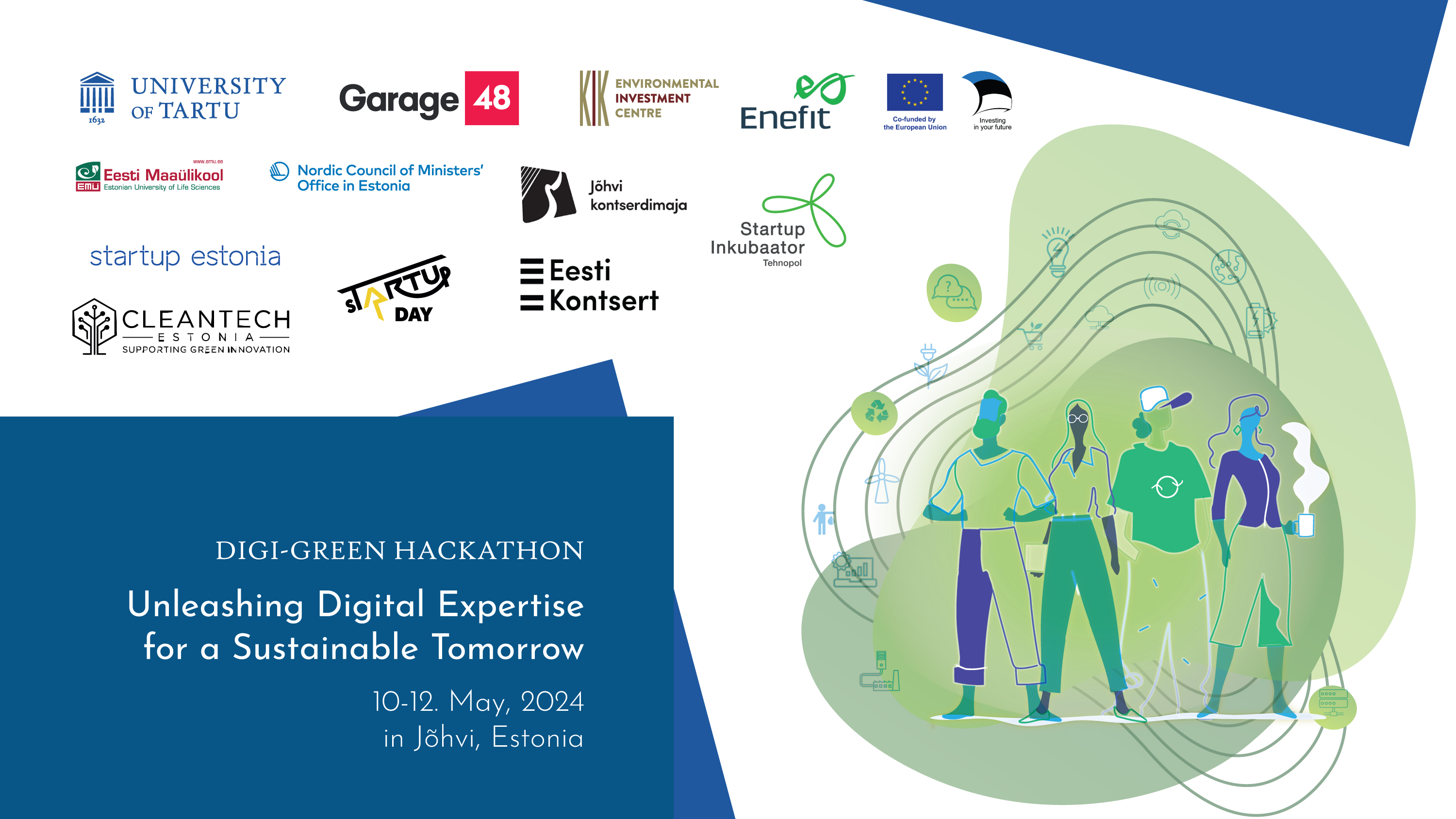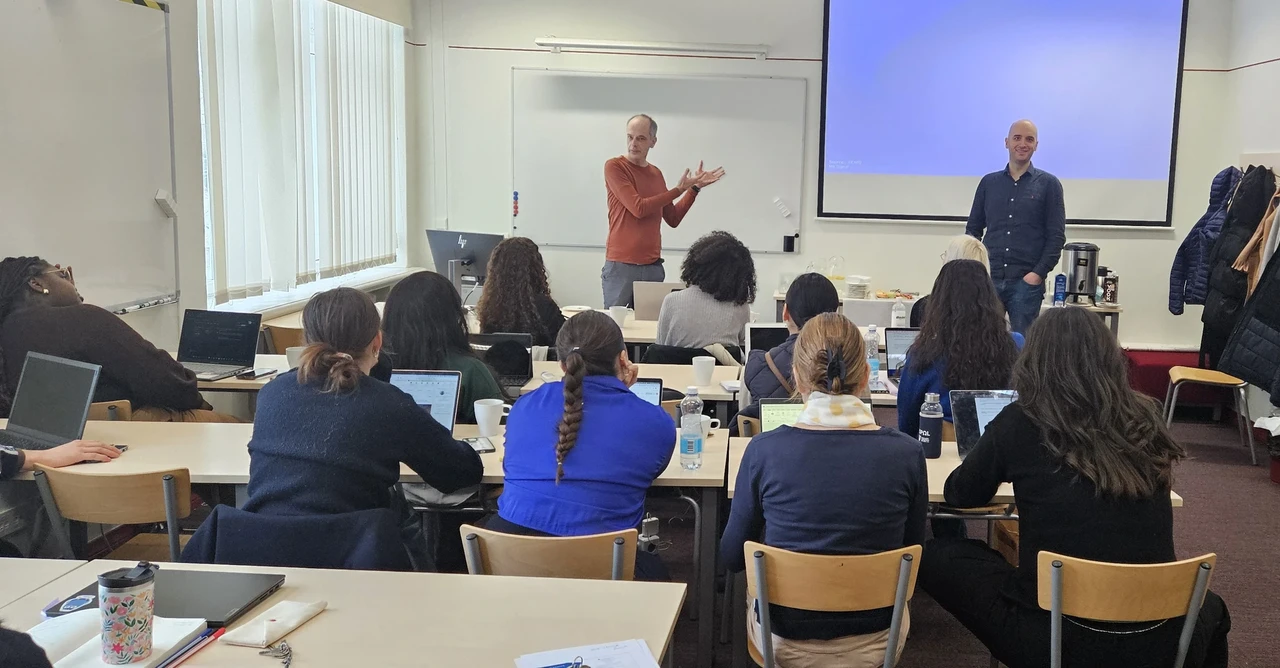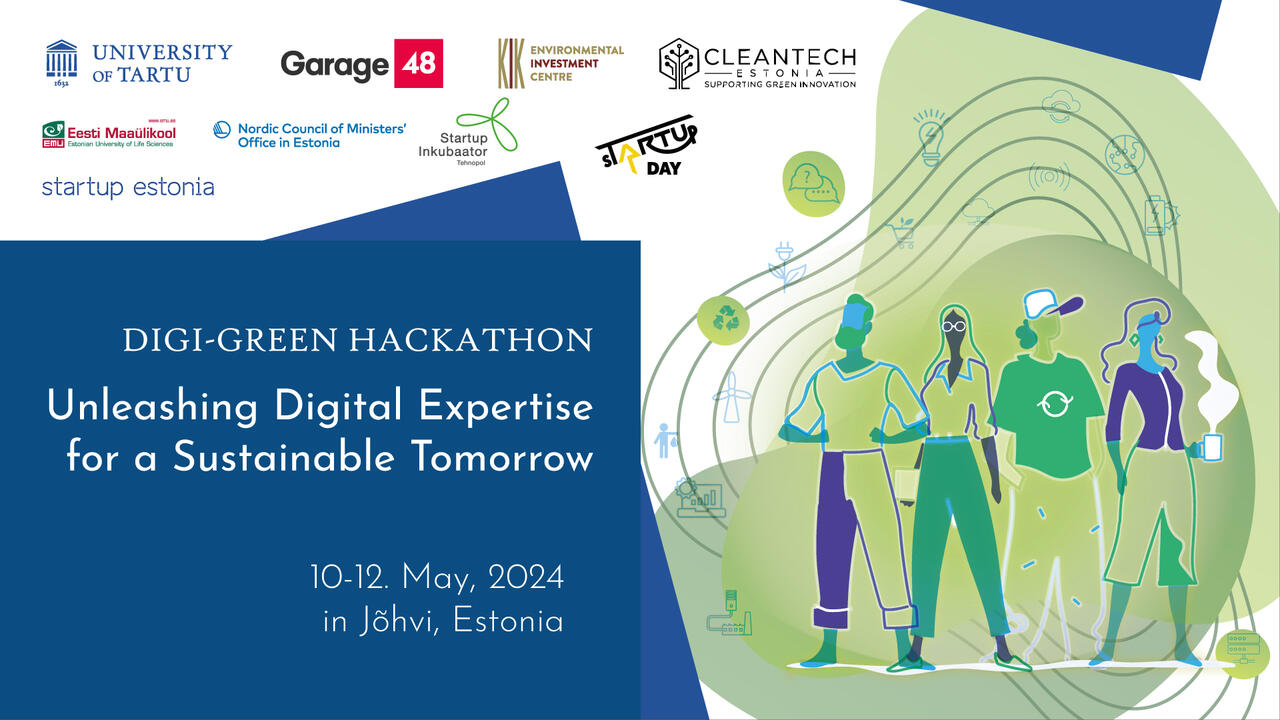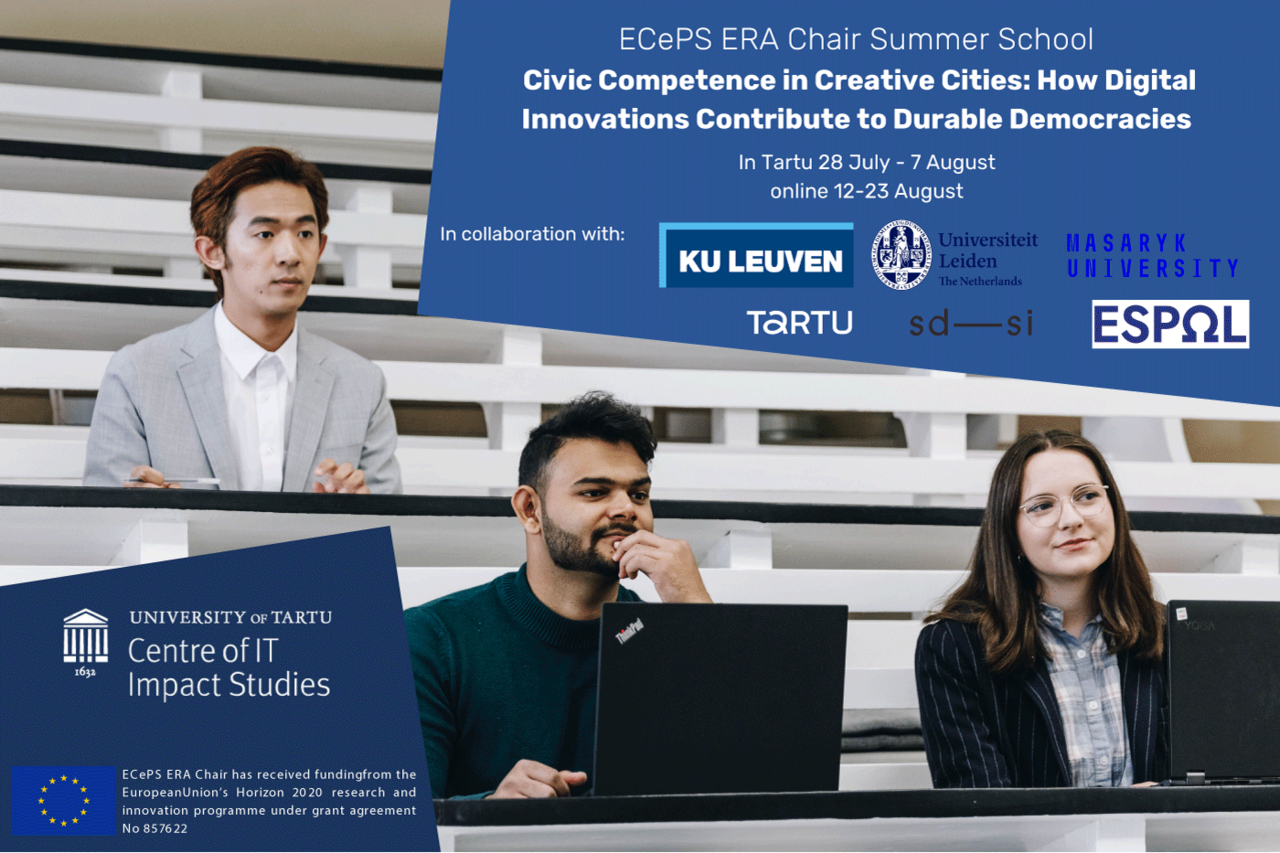From 10 to 12 May, Estonian green transition region Ida-Virumaa hosted the DIGI+GREEN hackathon, where teams competed to find solutions on how to make the currently collected data work better for the benefit of green transition.
From Friday to Sunday, a positive and enthusiastic atmosphere prevailed in the Jõhvi Concert Hall as the teams, led by 7 mentors, fine-tuned their ideas.
On Sunday evening, they took it in turns to anxiously take the stage to present their e-services and app prototypes to an international jury of five. Squeezing their multifaceted solutions into 90-second presentations was a challenge in itself.
The competition was very tight. After a lengthy jury deliberation, the winning solution was announced: WATTSmart, an app that analyses the user's energy consumption and recommends suitable electricity-saving methods. What makes it special is the use of machine learning techniques, which allows the app to tailor its recommendations according to the consumer's behaviour as well as income level. The winning team was awarded €3,000 worth of consultancy and support services to turn their idea into reality.
In a very close competition, Guideless came second and was also awarded a special Ida-Viru prize by the Nordic Council of Ministers’ Office in Estonia. The solution is an app focusing on eco-friendly tourism, which is especially suited for self-guided hikers/tourists and helps to plan a suitable day trip in terms of time and money including visits, transport and catering. It allows visitors to make informed choices and also provides a user-friendly platform for tourism-related service providers.
The second special prize was given by Eesti Energia for the best energy-related solution. It went to the educational energy game GriVi, which aims to introduce the player to the functioning of the energy system and the impact of different factors on the functioning and price of energy.
One of the most interesting solutions, and one of the most exemplary in terms of improving the use of data, was Public Good, which aims to create a data engagement platform to enable the public sector to make better use of privately-owned data to create better e-services. According to Elis Vollmer, the main organiser of the Hackathon, the exchange of data between the public and the private sector is currently poorly organised and unregulated, and such a solution would help to better harness data for the benefit of the public sector, bringing direct benefits to local citizens. The idea was also flagged because it would be a solution for the direct benefit of society, without having the same quick business potential as other apps and tools. The special prize for this solution was a Cleantech Estonia consultation and tickets to the sTARTUp Day, so that they could get more inspiration and advice to develop their solution into a real service.
Forestry is a hot topic in Estonia at the moment, so two of the solutions created - Silva Future and 4est.ai - focused on forestry - helping forest owners make better decisions on how to manage their forests in an environmentally friendly way.
The Audience Favourite award was won by G-block, a solution that helps prove that crypto miners use 100% green electricity.
Prof Vincent Homburg, professor of e-governance at University of Tartu and one of the mentors and jury members, noted that it was fascinating to watch strangers get together for 48 hours, work intensely for joint vision, and end up with practical working prototypes that can help improve lives of our citizens.
The hackathon was organised by the University of Tartu in collaboration with Garage 48. The hackathon was supported by the Estonian University of Life Sciences, Startup Estonia, Cleantech Estonia, Eesti Energia, Nordic Council of Ministers’ Office in Estonia, sTARTUp Day, Tehnopol, Environmental Investment Centre and Eesti Kontsert. The Hackathon was co-funded by the European Commission.






Comments